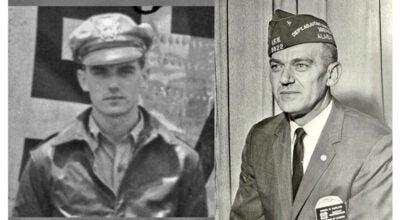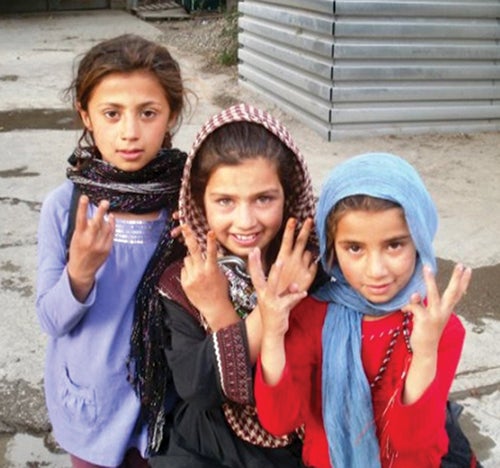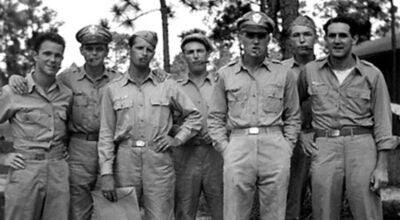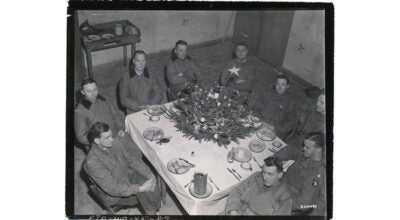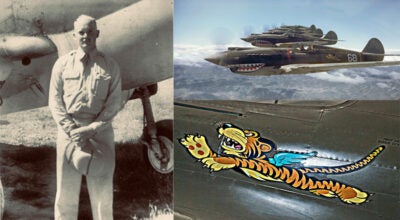John Vick: Thoughts about Afghanistan, Part 1
Published 4:39 pm Friday, August 27, 2021
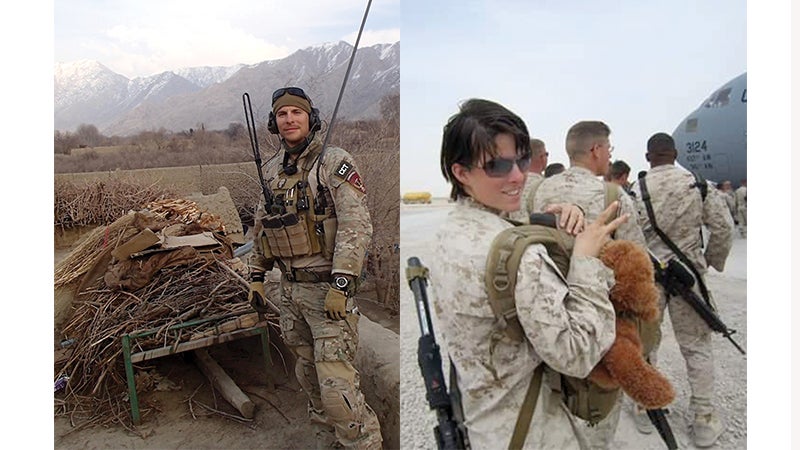
- LEFT: Staff Sergeant Forrest Sibley, Combat Controller, USAF, 21st Special Tactics Squadron. Sibley was killed Aug. 26, 2015 when he and another Air Force soldier were killed by a rogue Afghan soldier at a check-point. [Photo COURTESY OF USAF SOW] RIGHT: LCpl. Melissa Terwilliger, USMC leaving Afghanistan after two tours. [Photo COURTESY OF LCpl. Terwilliger]
|
Getting your Trinity Audio player ready...
|
The sudden recapture of Afghanistan by the Taliban has left many Americans angry and frustrated by the 20-year long war, the longest combat operation in U.S. history. Even when the terrorists appeared to be defeated, it seemed as though Afghanistan was “a large black hole” that swallowed U.S. dollars and cost American lives.
On October 7, 2001, President George W. Bush launched Operation Enduring Freedom, in which United States forces along with a coalition of NATO forces attacked the Taliban in Afghanistan and the al Qaida terrorists who had taken refuge there. Over the next almost 20 years, the operation cost the American taxpayers more than $2 trillion or about $300 million per day. Assuming a U.S. population of 300 million, that works out to around $7,000. per person for the 20 years.
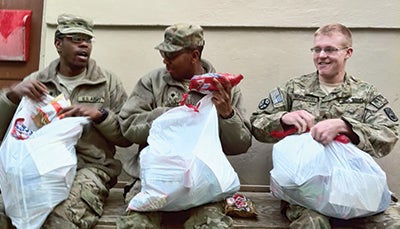
Three Army soldiers in Afghanistan receiving “care” packages from Andalusia in 2011. [Photo COURTESY OF PAUL SPEARS JR.]
Almost 2,500 American service members have lost their lives in the Afghanistan war along with more than 3,800 contractors. Other NATO nations in the coalition lost more than 1,100 troops. Afghan losses totaled more than 110,000 killed, including military, police and civilians. The Taliban and opposition forces lost more than 51,000 killed. Historians will debate the U.S. role in the war for years to come. We will share comments from several people with a direct connection to the war. Some of them lost family, some of them lost fellow soldiers and friends – all of them are frustrated with the recent events in Afghanistan.
U.S. Air Force Staff Sergeant Forrest Brent Sibley was on his fourth deployment to the Middle East when he lost is life in Helmand Province, Afghanistan, on August 26, 2015. Forrest was a native of Oneonta, Alabama but had recently bought property near Bradley, Alabama, not too far from where his grandfather, Ray Sibley, lives near the Open Pond area. Brent Sibley, Forrest’s father commented on the current situation, “I had hoped our effort would have led to a democratic form of government…America supplied Afghanistan with weapons, equipment and the finest training in the world…but judging from what we see today, their country has failed. As a Gold Star father, I find it hard to have much sympathy for them. Our brave military succeeded in their mission and should have come home but the mission changed and we were over there 20 years. I know that my son was focused on day-to-day mission operation success, defeating enemies of America – unrelated to political or global issues. I’m thankful for the sacrifices made by my son and by our military but I believe we should have left years ago. The costs in American lives far outweighs any benefit we may have gotten. The timing and method our government leaders chose to leave has left both countries in distress and turmoil. I am convinced our military succeeded in its missions…and I’m grateful our sons and daughters are coming home, but I fear the manner in which we left will lead to serious international terrorist issues in the future.
LCpl. Melissa Terwilliger, USMC, served two tours in Afghanistan with the 1st Maintenance Battalion, 1st Marine Division as a mechanic. She worked on Humvees, amtracs and other armored vehicles. She describes her work there, “We had to receive and fix vehicles that had been hit by IEDs [improvised explosive devise], hit by other bombs or that had been shot up. The things you see when doing your job makes everything feel not worth it. To know and see the blood of your brothers and sisters that were injured or killed in the very same vehicle you have to fix in order to keep the mission going – that’s something you cannot un-see. You have to go out and retrieve these vehicles and hope you don’t end up with the same fate as those other injured soldiers. To see the aftermath of what happened takes every bit of happiness from you.”
On a lighter note, LCpl Terwilliger recalled some of the Afghan people she encountered, “There was a small market just outside the wall where we could meet Afghan nationals who were deemed safe. The men sometimes brought their small children. I can still see their smiling faces – they were happy because they felt we were freeing them from the hatred of the Taliban. Seeing the kids run around freely and playing made us feel like we were doing the right thing….One of my favorite memories is of an Afghani boy who wanted me to play kickball with him. We weren’t supposed to do that sort of thing but I kicked the ball back and forth with him a few minutes just to see him smile. All the time, I kept up my guard to be sure that this wasn’t a means of distracting me from something else.”
Like so many others returning from a war zone, Terwilliger’s memories flash back, “You think you’ve left the war behind, but no matter what your job was, how little you saw, a part of you is traumatized. There’s a part of you that stays back there and you never get that part back….Seeing what is going on today breaks my heart, it brings back memories of those I’ve lost – and I’m not alone. We feel like what we did, didn’t matter. The lives lost were in vain. We try to think back to the smiling faces of the people we saw and make ourselves believe that we made a difference so that we can hopefully find peace – but it doesn’t come. There is no positive story for the veterans who served in Afghanistan, we’re not OK.”
Paul Spears, Jr. is a friend of the author and worked in Afghanistan as a contractor. Paul recalls,
“In 2011, I decided to accept a position supporting the Army in Afghanistan as a government contractor. My job was working with computer network security so I figured I’d be assigned to a relatively safe base – at least that’s what I told my wife and kids before I left Andalusia. After a few weeks training at Fort Benning, Georgia, I flew to Ali Al Salem Air Base in Kuwait and then on to Bagram Air Force Base. I was assigned to Camp Eggers in Kabul. I felt confident because the NATO coalition was headquartered there. There were 12 General officers assigned to Camp Eggers so I felt I’d hit the jackpot with that kind of security. I flew from Bagram AFB to Kabul International Airport [KIA].
Spears arrived at Kabul expecting to have a convoy escort to Camp Eggers. To his surprise, things weren’t quite what he had imagined. “As I was waiting to be picked up, an old Toyota Land Cruiser pulled up. I was surprised to hear the South Alabama drawl of Ray Byrd from Atmore. I felt a little more trust and comfort just hearing his voice. Ray was also a civilian contractor who was in charge of our housing in Kabul. After we loaded my gear, we headed into the city. I was still partially in shock because I had expected to be on a base with lots of soldiers and on the drive, I hadn’t seen a single U.S. soldier. We arrived at a house within the so called ‘ring of steel’ and I unloaded my gear. The only soldiers I saw were Afghan National Police. Ray told me to go inside and find a bed to bunk down for the night and that he would be back in the morning. I quickly noticed that I was the only one in the house and that there were no locks on the front door. During the night I could see guards, constantly walking by the houses in the area. That house was a transient house used by Ray but I was the only occupant that night. Needless to say, I got no sleep that night.”
Ray Byrd picked up Paul the next morning and got him settled in permanent housing nearby. For the next 12 months, he would live with other contractors in what they called the Casino house. Paul remembered, “We were driven daily to various bases in and around Kabul. We had freedom to walk within the ‘ring of steel’ and could occasionally go outside the area to local stores and restaurants. There were always children waiting for us to exit the base, hoping we would give them candy or some other treat. I kept candy from my ‘care’ packages from home to give the kids and see the smiles on their faces.”
Paul Spears, Jr. concluded, “We often had conversations with young girls attending school near Camp Eggers. They spoke several languages and spoke English fairly well. They seemed happy and grateful that they were allowed to attend school because of the American presence …My job was not what I had imagined and came with unexpected risks but it gave me the unique opportunity to meet and talk with local Afghans. For the most part they were grateful that we were there. I felt as if we were really making a difference in the lives of the locals…I left Afghanistan in 2012…I don’t know what the future holds for Afghanistan but I saw hope and excitement in the eyes of kids when I was there.
“To see what is happening now is heartbreaking after our country has given so much. My heart breaks for the American families who lost loved ones…I worry that they feel it was all for nothing. There is no way to sugar-coat the current administration’s poor handling of our country’s exit from Afghanistan.”
Paul Spears, Jr. had the unique experience of having his father, Paul, Sr. join him in Afghanistan. For most of their time there, they worked at the same base and lived in the same safe house. Paul Sr. recalled his time there, “I arrived a couple of months after Paul, Jr. It was an experience neither of us will ever forget. The U.S. Embassy in Kabul that just fell to the Taliban was our safe haven. It’s funny what we miss when we don’t have something. There was virtually no grass in Kabul so I used to go over and smell the freshly cut grass on the embassy grounds. We couldn’t have been over there without the support and encouragement of our wives – they sacrificed too. We were also thankful for all the ‘care’ packages from home. As far as my experiences over there, I agree with my son – the majority of Afghans are a humble, appreciative people and the current situation is so sad.”
[To be continued]
— John Vick
Thanks to the people who shared their thoughts about the war in Afghanistan.
More COLUMN -- FEATURE SPOT
